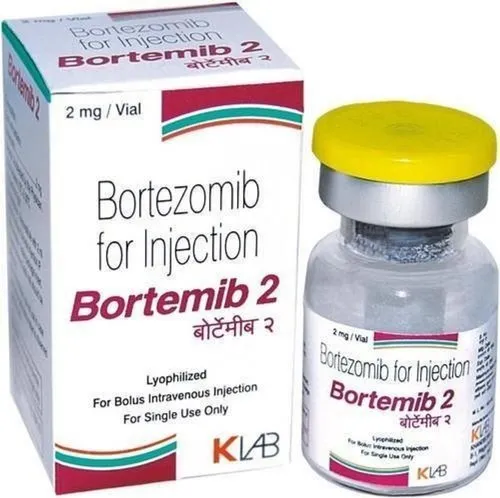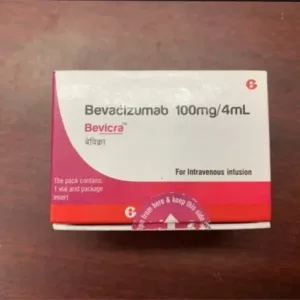Bortezomib comes as a solution (liquid) to inject into a vein or subcutaneously (under the skin). Bortezomib is given by a doctor or nurse in a medical office or clinic. Your dosing schedule will depend on the condition that you have, the other medications you are using, and how well your body responds to treatment.
Be sure to tell your doctor how you are feeling during your treatment. Your doctor may stop your treatment for a while or decrease your dose of bortezomib if you experience side effects of the medication.
Ask your pharmacist or doctor for a copy of the manufacturer’s information for the patient.
This medication may be prescribed for other uses; ask your doctor or pharmacist for more information.
Before using bortezomib,
- tell your doctor and healthcare provider if you are allergic to bortezomib, mannitol, any other medications, boron, or any of the ingredients in bortezomib. Ask your healthcare provider for a list of the ingredients.
- tell your doctor and pharmacist what other prescription and nonprescription medications, vitamins, or nutritional supplements you are taking or plan to take. Be sure to mention any of the following: clarithromycin (Biaxin, in PrevPac); certain antifungals such as itraconazole (Sporanox) or ketoconazole (Nizoral); idelalisib (Zydelig); medications to treat diabetes or high blood pressure; certain medications to treat human immunodeficiency virus (HIV) or acquired immunodeficiency syndrome (AIDS) such as indinavir (Crixivan), nelfinavir (Viracept), ritonavir (Norvir), or saquinavir (Invirase); certain medications to treat seizures such as carbamazepine (Carbatrol, Tegretol), phenobarbital (Luminal, Solfoton), or phenytoin (Dilantin, Phenytek); nefazodone; ribociclib (Kisqali, Kisqali, in Femera); rifabutin (Mycobutin); or rifampin (Rifadin, Rifamate, Rimactane, others). Your doctor may need to change the doses of your medications or monitor you carefully for side effects. Many other medications may also interact with bortezomib, so be sure to tell your doctor about all the medications you are taking, even those that do not appear on this list.
- tell your doctor what herbal products you are taking, especially St. John’s wort.
- tell your doctor if you or anyone in your family has or has ever had heart disease and if you have or have ever had a herpes infection (cold sores, shingles, or genital sores); diabetes; fainting; high cholesterol (fats in the blood); low or high blood pressure; peripheral neuropathy (numbness, pain, tingling, or burning feeling in the feet or hands) or weakness or loss of feeling or reflexes in a part of your body;or kidney or liver disease. Also tell your doctor if you smoke or drink large amounts of alcohol.
- tell your doctor if you are pregnant or plan to become pregnant. Bortezomib may harm the fetus. Use birth control to prevent pregnancy during your treatment with bortezomib and for at least 7 months after your final dose. If you are a male with a female partner who could become pregnant, be sure to use birth control during your treatment with bortezomib and for at least 4 months after your final dose. Ask your doctor if you have questions about types of birth control that will work for you. If you or your partner become pregnant while using bortezomib or for 7 months after your final dose, call your doctor immediately.
- do not breastfeed during your treatment with bortezomib and for 2 months after your final dose.
- if you are having surgery, including dental surgery, tell the doctor or dentist that you are using bortezomib.
- you should know that bortezomib may make you drowsy, dizzy, or lightheaded, or cause fainting or blurred vision. Do not drive a car or operate machinery or dangerous tools until you know how this medication affects you.
- you should know that bortezomib may cause dizziness, lightheadedness, and fainting when you get up too quickly from a lying position. This is more common in people who have fainted in the past, people who are dehydrated, and people who are taking medications that lower blood pressure. To avoid this problem, get out of bed slowly, resting your feet on the floor for a few minutes before standing up.









